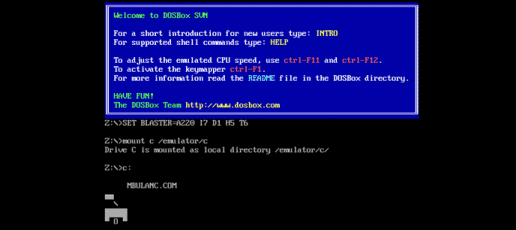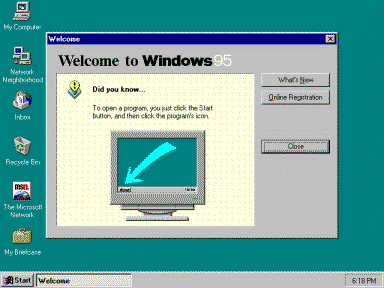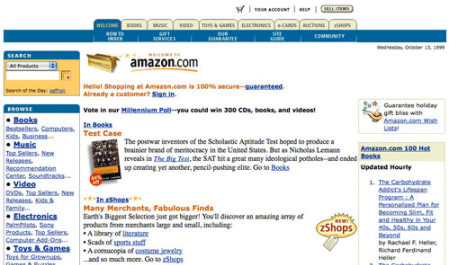How people interact with your organisation is likely to change radically over the next few years. The maturing of some key technologies, most notably machine learning and conversational interfaces, means your users may no longer be using your website.
So why do people use computers the way they do? Why might this change?
In the beginning…
Are you old enough to remember command line interfaces? When I turned on my first commuter, an Apple II, all you saw was a blinking cursor. Usability was non-existent. You had to remember the command words and inputting these was long and slow...
...and then there was a revolution….
Enter the Graphical User Interface…
GUIs had been knocking around since the 1960s but the first really popular one was the Apple Lisa launched in 1982, and when windows 3.0 came along in 1990 GUIs started to take over. By the time windows 95 (yes in 1995!) came along the GUI was king. A revolution had happened, we all used computers in an entirely different way. The WIMPS (Windows, Icons, Menus and Pointers) had taken over.
What happened next….
Well not much really. We have all used computer interfaces in much the same way ever since (with a few minor tweaks for touch and swipe devices).
The 1998 Amazon web site looked like this:
10 years later it looked like this:
And 10 years on in 2018 it looks like this:
The Amazon website in 2018 performs in the same way as the one in 1998 (Search, headers, icons, basket, etc). The way we use websites was determined by the GUI and has not fundamentally changed since. We use a search engine to find a website and then navigate to a product or content. We have also learned how to navigate around websites (Menus, Icons, Searching, etc .). Clearly there have been improvements. Hopefully the speed at which we find what we want has improved, but we do things in the same way as in 1998.
But this is all about to change. Revolution no 2 is on its way…
Revolution No 2
We have spent the last 30 years learning how to use computers, now the computers are learning how to work with us!
Why is this happening now?
- Artificial intelligence - The improvements in artificial intelligence over the last five years mean, for example, computers are significantly better at recognizing what people say. Since 2012, error rates for speech recognition have gone from a third to under 5%. This isn’t perfect. With normal use a 5% error rate can be something you run into every day or two. But this is improving very quickly.
- Smart devices - There are more smart devices than ever before. Almost 2.4bn people have a smartphone. Google Assistant is now available on 400 million devices. The Echo Dot was the best-selling product from any manufacturer in any category across all of Amazon this Christmas
- Messaging apps – There is a massive rise in the use of messaging apps - WeChat (1 billion active users), Facebook messenger (1.3B), and WhatsApp (1.3B)
And if you still don’t believe Revolution no 2 is underway try these stats from Amazon and Google this Christmas:
- This Christmas, millions of Prime members voice shopped with Alexa for gifts, Amazon devices and everyday household essentials.
- Alexa customers turned on lights more than a million times via Alexa this holiday season.
- Customers asked Alexa for cooking related advice more than 9 times as much this year compared to last Christmas
- Alexa on Fire TV is more popular than ever before, with usage in the United States up 889% compared to the same time period last year
- Assistant now gives you the power to voice control more than 1,500 compatible smart home devices from over 225 brands
- Google Home usage increased nine-fold this Christmas season compared to last year
Clearly, the way we interact with our digital devices is changing. People are using natural language to ‘chat’ to their devices and the organisations they wish to deal with. We believe this trend is likely to make the website, as we currently know it, redundant.
Related content: What is a chatbot: a beginner's guide, How can you use a chatbot?







